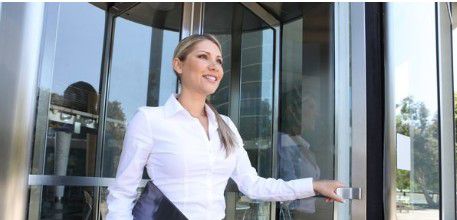《金融时报》财经英语阅读 【中英对照】
|
小孟站在悉尼市政厅门前的台阶上,手里挥舞着他的学位帽,而他的一些中国同学正忙着在他参加毕业典礼之前帮他拍些照片。 Standing on the steps of Sydney's town hall, Eddie Meng waves his mortar board as some of his fellow Chinese students take pictures of him before his graduation ceremony. Mr Meng is from Shanghai, but he has spent three years in Australia completing a masters degree in information technology at Central Queensland University (CQU). The 26-year-old plans to return to Shanghai soon, either to join a Chinese company or start his own business. "With the experience I have just had in Australia, I might even go into some kind of import-export activity,'' he says. China has led a surge in the number of overseas students enrolled in Australian universities, which climbed almost 50 per cent between 2002 and 2006. Last year foreigners accounted for a quarter of the country's students. But that influx has sparked concerns about whether some universities have lowered admission standards excessively to tap into this lucrative pool of foreign students. Chinese students last year represented 26 per cent of foreigners in Australian higher education, according to government figures. For Mr Meng and others, Australia offers an opportunity to study in an English-speaking, free-market economy whose exports are increasingly dependent on Chinese demand. Canberra also offers incentives for overseas students to apply for permanent residence. Australia's points-based immigration system has targeted students acquiring skills ranging from cooking to accounting at a time when Australian unemployment has fallen to a three-decade low. Bob Birrell, a professor at Monash University who conducted an extensive study of overseas students, notes that "less prestigious universities have jumped into this market to put on customised courses tailored to these (foreign) students''. The main worry sparked by the Chinese-led influx has been poor English-language skills. In his study, Prof Birrell found that 34 per cent of overseas students who graduated and got residency status in Australia did not achieve the minimum level of English required for professional activity, with 43 per cent of Chinese students falling short. Tracey Bretag, senior lecturer at the school of management of the University of South Australia, says: "It is too easy to say foreign students are lowering the level and responsible for problems such as plagiarism. If you take their money, you must then give them a chance to succeed and achieve their full academic potential." Having welcomed its first foreign students in 1994, CQU now takes half its 24,000 students from overseas. It has a learning skills unit, whose advisers work for free with students either individually or in groups. But 60 of its students recently staged a two-day hunger strike, complaining they were being forced to extend their studies after unfairly failing their final examination. Foreign students have become invaluable to Australia because their influx has coincided with a sharp funding shortfall for universities. Canberra's contribution to university budgets has dropped from 60 per cent to 40 per cent in the past decade, leaving Australia with the third-lowest public expenditure on tertiary education among OECD countries, behind the US and Japan. This month the government took a step towards improving the funding situation by pledging to remove a contentious cap on full fee-paying domestic students and creating a A$5bn (US$4.1bn, €3bn, £2.1bn) endowment fund to help universities finance infrastructure such as research facilities. While the move was applauded by universities, pundits say it is unlikely to put an end to the quest for foreign students such as Mr Meng, whose stint in Australia cost him about A$40,000 a year, including fees. That money came mostly from his family, with the rest earned from part-time jobs. From September, Canberra is set to raise the minimum English standards required for students to obtain residency. But John So, who left Hong Kong to study and then develop a restaurant business in Melourne, predicts this will not be an issue for Chinese students, who will increasingly follow Mr Meng and return to booming China. Mr So, who is serving a second term as lord mayor of Melbourne, says: "In my time, the opportunities if you went back to China were very limited. The situation has become in many ways the reverse.'' |








